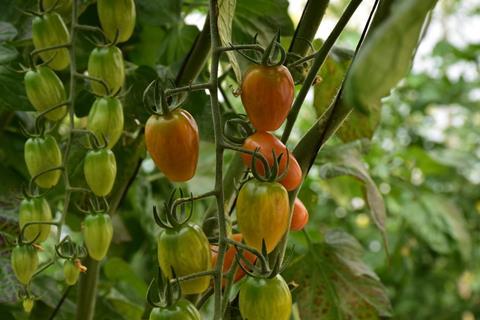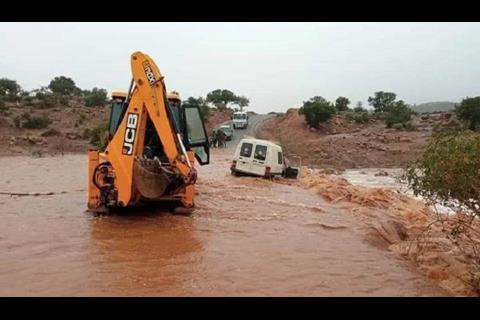Flooding, cold temperatures and cancelled ferries have caused significant supply problems in Moroccan tomatoes, according to importers
Alongside a wide range of other supply shortages, the UK has suffered a major hit to its tomato supply due to challenging growing conditions and logistical problems in Morocco and Spain.
In the North African country, growers and suppliers have had to contend with a “perfect storm” of cold temperatures, heavy rain, flooding, and cancelled ferries over the past three to four weeks – all of which have seriously affected the volume of fruit reaching Britain.
Tomato supply from Britain’s other major winter source, Spain, has also been badly affected by weather. Tomato volumes from Almeria in weeks 5-7 were down 22 per cent on last year.
As a result, pictures have been circulating of empty supermarket shelves, and foodservice and catering businesses have had to settle for reduced deliveries as wholesalers try to spread out the limited supply.
One fresh produce business affected is Burbank Produce, a Bradford-based wholesaler and importer which mainly supplies the foodservice and catering sectors. Commercial manager Ed Bowers said the current supply situation was “all a bit doom and gloom” and “a matter of keeping as many people happy as possible”.
“We’ve got a lot of fruit programmed with various clients around the UK and we’ve been having to cut orders back here and there to make sure people have the fruit,” he told FPJ.
The importer added that Burbank has only been able to send tomatoes to its contracted customers but has had no stock for general sale.
As a result of these shortages, spot prices for tomatoes have sky-rocketed, with Nationwide Produce boss Tim O’Malley reporting prices two to three times higher than normal levels for the time of year.
According to Bowers, there haven’t been major issues with fruit quality, but some tomatoes have been under-coloured because the fruit has been slower to mature, and growers have sometimes had to pick early due to supply shortages.
To complicate matters further, Moroccan producers are contending with the emergence of tomato pathogen ToBRV, which has seriously affected tomato yields in a number of countries in recent years.
‘A perfect storm’
Production problems in Morocco began in January with unusually cold night-time temperatures that affected tomato ripening. Bowers said it was probably the worst cold weather that Moroccan tomato sector has seen for five years. And a lack of sunlight combined with the colder nights caused plants to “switch off” and stop growing.
These production issues were compounded by ferry cancellations due to bad weather between 9 and 12 February, which led to long tailbacks of vehicles trying to cross from the Port of Tangier in Morocco to the Port of Algeciras in Spain.
“The lorries that got stuck were taking two or three days to get to the port and across into Spain,” said Bowers. “We had goods to load on Monday that didn’t land until Thursday because there was a lack of vehicles – they were all in the wrong places because of the issues last week.”
Supply issues were exacerbated by heavy rain from 15 to 17 February, which caused flooding in the Souss Valley near Agadir, the country’s tomato heartland.
More ferries to Spain were cancelled on 17 February due to adverse weather. At the time of writing, it was unclear when they would recommence.
According to Bowers, the Moroccan government is helping growers mitigate future climate risk by supporting investment in tomato production in Dakhla, where temperatures are more regular and reliable than in Agadir, particularly in January and February. But he said the project could take several years to start having an impact.
In the short-term, the outlook remains somewhat unclear. “The weather forecast for Agadir looks much better next week but it’s going to take a bit of time for things to dry out and come back to some form of normality because we’ve been very short in supply for the last three or four weeks,” Bowers told FPJ on 17 February.
”The biggest problem is the lack of vehicles because of the problems last week, and then we were hit with this week’s rain and flooding. It’s a perfect storm.”
The heavy rain has left growers unable to pick their crop, according to Bowers. He said the producers that supply Burbank wouldn’t know until the start of next week how much they are going to be able to pick and pack for the wholesaler.
The current supply picture from Morocco contrasts sharply with the situation in November when record temperatures caused a glut of tomatoes.
“It’s like boom or bust,” said Bowers. “You go from having too much product three months ago to having not enough and huge demand. Now you can’t get hold of the product for love nor money. We’re fortunate that we’ve programmed all of this fruit, otherwise we’d be struggling to get it.”





